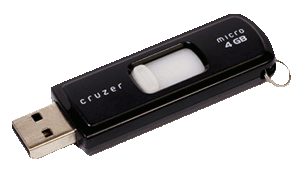Medical Records
© Charles ChandlerProblems with the U.S. healthcare system are unbelievably complex, and I have yet to hear any proposal for improvements that realistically addresses the scope of the issues. In fact, about all I've ever heard is "gimme" plans, where the people are arguing simply for what would benefit them the most, without regard for what's fair to others, or for what could actually work.So this essay does not pretend to tackle all of the problems. But there is one aspect of the process that could be fixed easily, and which would be a great convenience to patients and doctors alike, while also increasing the quality of healthcare. The problem is that the transfer of medical records, normally done via fax, is laborious. As a consequence, of the total amount of information that has been generated in the treatment of a patient, only a smaller portion gets transferred to the next specialist. Furthermore, faxing is a lossy process. It can only be done a couple of times before the text becomes illegible, and images suffer even in the first transmission.We need to find an easy way of storing medical records, such that they can be easily accessed by doctors, without all of the hassle (and data loss) involved in faxing.Most of the people who have contemplated this problem have suggested that all medical records be stored in a central server somewhere. While that would certainly have its advantages (such as making it possible for researchers to easily access huge amounts of data), the reason why this won't happen anytime soon is that there are privacy issues. There are many people who might want to get at your medical records, such as insurance companies, employers, etc. In a sense, they have a right to such information, but if they had access to it, then people would be less likely to seek treatment. So the insurance companies etc. still wouldn't have the information, while the patient is the only who really suffers.To get around the privacy issues, and yet to make it possible to store all of the information electronically, and to faciliate easy access to this information by whoever needs it, the patient should be the keeper of the information. In short, the patient should have a USB flash drive containing all of the data that have been generated in his/her treatment over the years.To protect the privacy of the patient, the data must be encrypted, such that they can only be read by a specific application, which all doctor's offices will have. When the patient supplies the password, the records will become accessible. All of the existing data will be read-only, while doctors will be able to add new data.The doctors would retain copies of all of the information that they created, but should have to get the explicit permission of the patient to make copies of any information generated by other doctors. It will then be the responsibility of the doctor to guarantee the privacy of such information, and it should be considered a crime to violate this trust.Patients will also have access to the application that can read the data on the flash drive. This way, the patient will be able to make back-ups of the data on a personal computer, such that if/when the flash drive is lost or damaged, the data will not be lost. The patient would also be able to return to all of the doctors providing treatment, and obtain new electronic copies of the data.Once the transition is made to electronic data, many things become possible. For example, with the patient's permission, some or all of the records, minus all personally-identifying information, could be made available to scientific research. There the central server comes into play. Currently, scientists wishing to do studies have to collect all-new information, because no one wants to release existing data. The economic costs of this are staggering, and the impediment to scientific progress directly impacts the health and well-being of everyone. If all of the information was collected and stored in a dedicated application that could guarantee that personally-identifying information was not uploaded to the central server, the benefits would be enormous. It goes without saying that many people would not trust "the system" to respect their privacies. So making this optional is a requirement.











